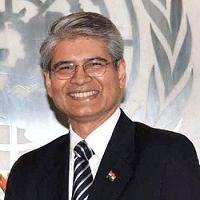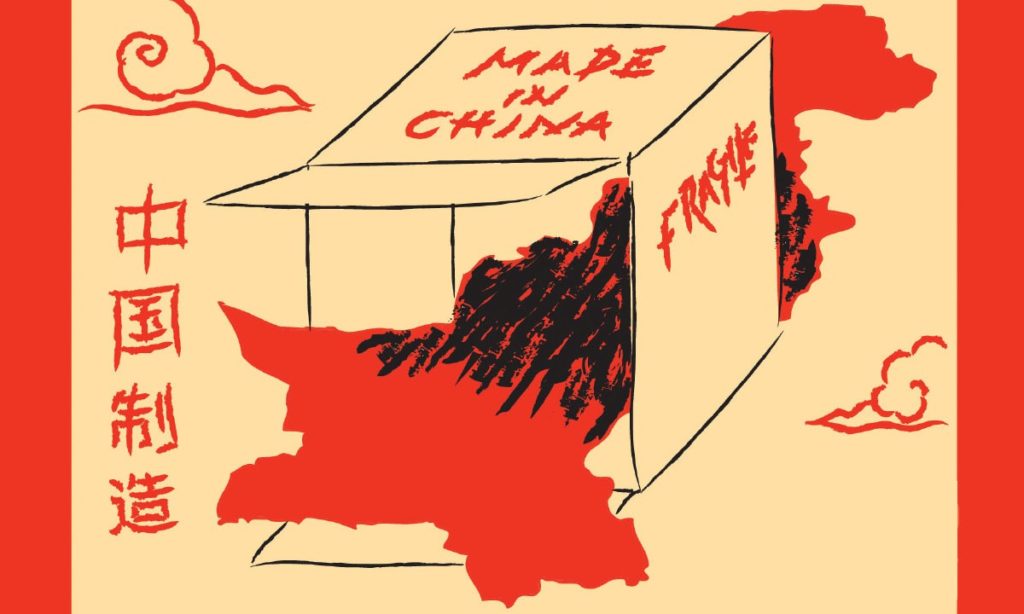
April 2019
Interview with Ambassador Asoke Kumar Mukerji

Interviewer: Pakistan has evolved in a way that may become a rapidly failing economy with jihadist political control, or alternatively Pakistan may turn out to be a colony of China in the wake of implementation of CPEC. What can be India’s options in such a scenario?
Amb. Mukerji: India’s options are focused on engaging with Pakistan as an immediate neighbour, with which India shares maritime and land borders. The need for a secure and predictable environment in India requires that Pakistan does not become a failed state. The most recent example of a failed state such as Libya in Africa illustrates the tremendous and unforeseen ramifications a failed state can have both for its own population, as well as for neighbouring countries. The main impact of jihadist or terrorist groups in Libya has been on Libya’s own population, and it is for Pakistan’s own population to counter Pakistan becoming a failed state.
China’s economic influence in Pakistan pre-dates the CPEC and is essentially centred around its military alliance dating back to the creation of a China-Pakistan-United States military axis. You need to focus on this dimension of Pakistan’s China connection as well, when looking at concepts like the “colonization” of Pakistan by China. India’s options would include expanding the scope of the Indo-Pacific engagement with the United States to counter Pakistan’s military linkage with China.
Interviewer: While Chinese influence is spreading even to central Asia through the BRI, India’s quest for better relationship with central Asian countries, including energy cooperation, are under challenge. Pakistan and Afghanistan are the main hurdles in India’s plan to connect with central Asia. How effective is India’s proposed plan to establish a North-South corridor using the Iran and Afghan roots, remains to be seen. What is your view on this?
Amb. Mukerji: The East-West connections across Central Asia are physically easier to implement than the North South connections, primarily because of the Hindu Kush/Pamir/Himalaya mountain ranges between Central Asia and India. In energy, India is part of the project to bring gas from Turkmenistan to India through the TAPI gas pipeline. In this project, cooperation of both Afghanistan and Pakistan is needed by Turkmenistan to supply natural gas to India.
Both Kazakhstan and Uzbekistan, in Central Asia, are now suppliers of uranium for nuclear energy in India. Kazakhstan is also a partner of India in joint exploration of Kazakhstan’s oil deposits in the Caspian Sea. These projects have no connection with Pakistan or Afghanistan.
Interviewer: India has suggested ASEAN centrality in the Indo-Pacific. Should India not have the central role in the emerging Security order in this region?
Amb. Mukerji: Yes, India must be central to the Indo-Pacific. This should be based on India’s Security and Growth for all in the Region (SAGAR) Indian Ocean Policy Framework.
Interviewer: The Chinese state control of the internet content, access and their censorship is well documented. Now, with China making huge investments and inroads in developing internet infrastructure across the globe, what do you think would be the form of the internet in the future?
Amb. Mukerji: This will depend on the kind of technologies that will emerge to drive the internet in future. In so far as transfer data through the fibre optic cables is concerned, any future Chinese influence in this sector will have to factor in the massive advantages Western corporations already have through their investments in creating fibre optic infrastructure network connecting the world, including India.
Interviewer: India in last 5 years has given top priority to combating terrorism in its diplomatic initiatives. India has taken substantial initiatives to befriend Afghanistan, UAE, Iran and Saudi Arabia. Recently India’s representation in the last OIC also turned out to be a diplomatic victory. Do you think India has made similar high-profile initiatives in the Indo-Pacific, particularly in Muslim majority countries, such as Indonesia and Malaysia? Please give your views.
Amb. Mukerji: With both Malaysia and Indonesia, India has bilateral joint working groups to counter terrorism. The details of the meetings of these groups is regularly put out by India’s embassies in these two countries, as well as by India’s Ministry of External Affairs (MEA). Please check the website for this. India has a direct stake in effective international cooperation to counter terrorism with a priority on a legal framework to prosecute or extradite terrorists wanted by India.
About Ambassador Asoke Kumar Mukerji
Asoke Kumar Mukerji is a former Indian diplomat and writer. He has had an exemplary career in the Indian Foreign services and he was Permanent Representative of India to the United Nations from April 2013 to December 2015 and was Chairman of the SAARC Steering Committee in 2011. He served with distinction in USA, UK, Russia, Belgrade, Soviet Central Asia in June 1990 and then the five newly independent countries of Uzbekistan, Kazakhstan, Kyrgyzstan, Tajikistan and Turkmenistan, UAE. He also served as a trade negotiator in World Trade Organization from 1995-98. He was also engaged India’s foreign policy formulation, engagement with various international organizations, border management, cyber security, counter terrorism etc. He has worked closely with Indian and international think-tanks on foreign policy issues related to major transitions in India’s immediate neighbourhood. Currently he is a member of the International Institute of Strategic Studies, London, the United Service Institution (USI), India and the Institute for Defence Studies and Analyses (IDSA),India.
![]()

